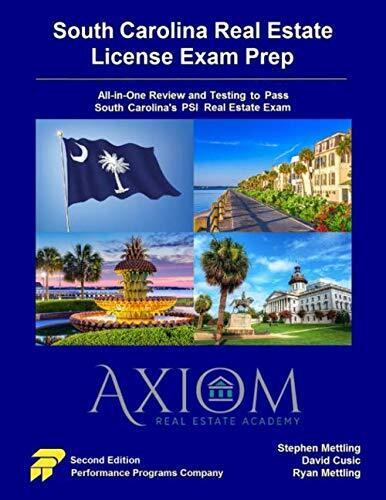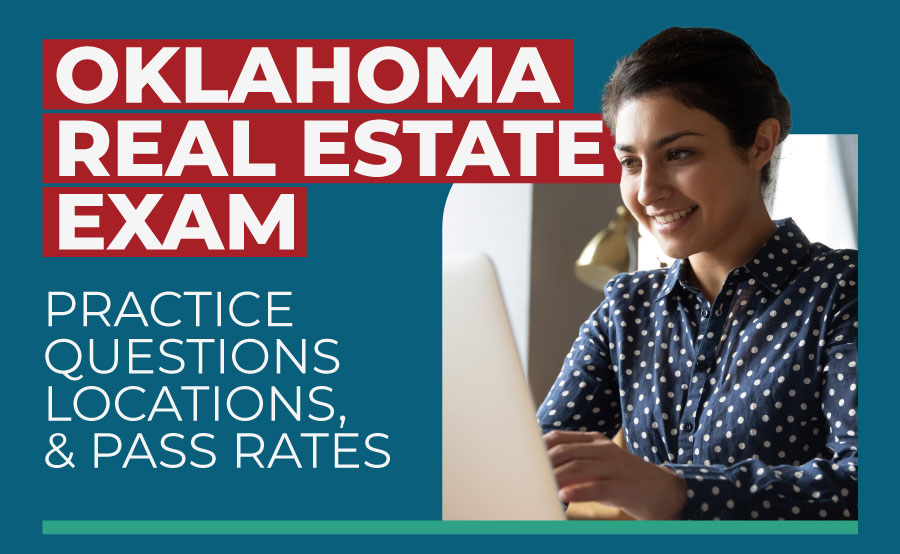
A real estate license is a document issued by the state that identifies an individual as a licensed professional in the field of real estate. This certification is usually achieved through a combination education and testing. The process of obtaining a real-estate license is different in every state. It's important that you research the requirements of each jurisdiction before you apply.
What Is a Real Estate License?
A real estate license provides a number of benefits to an agent or broker, from access to new deals to risk-minimization and more. You can also boast about your status as a real-estate professional, which can help you gain an edge over investors and agents in the field.
Obtaining Your Real Estate License
To obtain a real estate license, you must pass the state real estate licensing exam. The exam is generally divided into two parts, one covering federal real estate laws and general real estate principles and the other covering state-specific law. Candidates who have been licensed for several years will often take the first part, while those who are new to the profession will usually take the second.

Particularly for first-time real estate license applicants, the exam can prove difficult. The best way to prepare is to take an online course or attend in-person classes at a university or community college. Many real estate courses offer practice tests, which can help you to familiarize yourself with the material before taking the exam.
Why Get a Real Estate License?
One of the main reasons to get a real estate license is to make money. You will earn a commission for every sale or purchase you make on behalf of your clients as a licensed agent. You will also be paid a referral fee. This can be a great side business for someone looking to make extra income.
What you should know about obtaining your Real Estate License
The process of obtaining a real estate license can vary by state, but most require a background check, a high school diploma, and some kind of education before you can even begin. Depending on the state, you might also need to disclose any convictions you might have.
Before you can sit for the state exam, you must have completed at least 45 hours in pre-licensing education. This coursework should cover national and local real estate principles and laws, as well as math courses that will prepare you for the exam. You can either take classes at a local college, public university, or online college.

Online classes
Another advantage of a real-estate license is the ability to learn at your own speed. This means you can fit your classes in around your other commitments, which can increase your retention and help you to ace the exam.
You can pass the exam with ease by enrolling in an online course. This will allow you to get started on your new career quickly. RealEstateU offers a variety of courses that will help you pass the state exam and get started in your real estate career.
FAQ
What are the top three factors in buying a home?
Location, price and size are the three most important aspects to consider when purchasing any type of home. Location is the location you choose to live. Price refers the amount that you are willing and able to pay for the property. Size refers the area you need.
What are the disadvantages of a fixed-rate mortgage?
Fixed-rate mortgages tend to have higher initial costs than adjustable rate mortgages. Also, if you decide to sell your home before the end of the term, you may face a steep loss due to the difference between the sale price and the outstanding balance.
How much should I save before I buy a home?
It all depends on how many years you plan to remain there. If you want to stay for at least five years, you must start saving now. You don't have too much to worry about if you plan on moving in the next two years.
What are the benefits associated with a fixed mortgage rate?
Fixed-rate mortgages guarantee that the interest rate will remain the same for the duration of the loan. This ensures that you don't have to worry if interest rates rise. Fixed-rate loan payments have lower interest rates because they are fixed for a certain term.
What is a reverse mortgage?
Reverse mortgages allow you to borrow money without having to place any equity in your property. You can draw money from your home equity, while you live in the property. There are two types available: FHA (government-insured) and conventional. Conventional reverse mortgages require you to repay the loan amount plus an origination charge. FHA insurance covers repayments.
How much does it take to replace windows?
Window replacement costs range from $1,500 to $3,000 per window. The total cost of replacing all of your windows will depend on the exact size, style, and brand of windows you choose.
Statistics
- The FHA sets its desirable debt-to-income ratio at 43%. (fortunebuilders.com)
- 10 years ago, homeownership was nearly 70%. (fortunebuilders.com)
- When it came to buying a home in 2015, experts predicted that mortgage rates would surpass five percent, yet interest rates remained below four percent. (fortunebuilders.com)
- Over the past year, mortgage rates have hovered between 3.9 and 4.5 percent—a less significant increase. (fortunebuilders.com)
- Based on your credit scores and other financial details, your lender offers you a 3.5% interest rate on loan. (investopedia.com)
External Links
How To
How to become a broker of real estate
An introductory course is the first step towards becoming a professional real estate agent. This will teach you everything you need to know about the industry.
Next you must pass a qualifying exam to test your knowledge. This means that you will need to study at least 2 hours per week for 3 months.
After passing the exam, you can take the final one. To become a realty agent, you must score at minimum 80%.
If you pass all these exams, then you are now qualified to start working as a real estate agent!